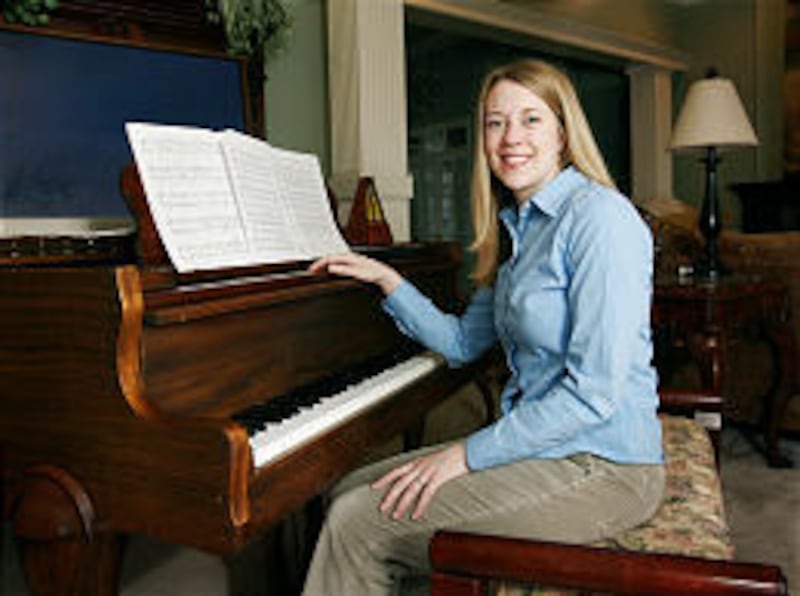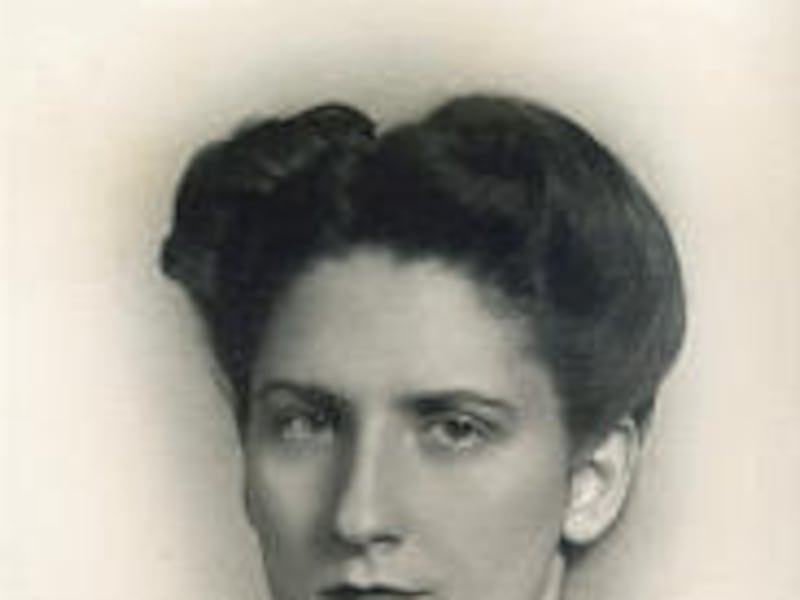It's been 56 years now. One of the most promising young composers of her day was killed in a car accident on the way home from a performance in Vernal. Music professionals agree that she had real talent.
But the question that still lingers is, what would Helen Taylor have contributed if she had lived?
We can only guess, of course, but in spite of her brief career, Taylor had an impact then and still has an impact today. Especially with the establishment of the Helen Taylor Johannesen Memorial Endowed Scholarship at Brigham Young University.
Taylor's sister, Beverly Sorensen, has funded an endowment for an annual scholarship (plus additional funds needed so it may begin this year), which pays full tuition and lesson fees for a music composition major at BYU.
For Sorensen, it's a chance to do through others what Taylor wasn't able to do herself with her music. It's also a way to continue the efforts of Taylor's husband — Grant Johannesen, who passed away last year — to bring Taylor's music and life to light.
In connection with the scholarship, Taylor's archive of documents, letters and scores have been donated to BYU. Also, a second CD of Taylor's music will be released this summer by Tantara, BYU's recording label.
Michael Hicks, head of BYU's composition division, has studied Taylor's papers and is impressed with her work. "It's clear from her music that this is someone who was a really smart composer, and a really gifted composer, and a really well-trained composer, and never got to really realize that."
Born in 1915 in Salt Lake City, Taylor showed early promise as a musician.
She studied piano at the McCune School of Music, following up her studies with a master's degree at Columbia University.
"In the fall of '41 to the spring of '42 she was on the faculty at Columbia Teachers College," said Hicks, "and she was playing accompaniment for Martha Graham, who had a teachers' studio nearby, and so she was improvising at the piano. She got very good at this."
Shortly, Graham would be doing Appalachian Spring with Copland, so Taylor got to know Copland through Martha Graham.
Taylor continued her studies at Juilliard — still playing for Graham. "There was a really strong group of female composers," said Hicks. "The proportion of female to male enrollments at Juilliard was growing each year after the U.S. entered the war. And so they were getting very strong as a group of women composers and really trying to take advantage of the opportunity to get their voices heard more and more. And on the other hand, there were a number of Mormons around. Helen was very active LDS."
It was while she was at Juilliard from 1942-45 that Taylor composed her first symphony, which has been recorded and released by Tantara on the CD "Discovering Helen Taylor." It was during this period that she met her future husband Johannesen, who was destined to become one of the world's foremost concert pianists. The two were married, and in 1946 they returned to Utah.
Hicks said that when she was expectant with her son, David Johannesen, she stayed busy, "playing piano for everyone under the sun, even though she was quite pregnant and Grant was gone pretty much all of the time."
"She was also writing hymns to submit to the church, which was trying to get hymns together for what became the 1948 hymnal. She wrote a number of hymns and none of them were accepted."
After giving birth, she continued to be active in music and began working for the McCune School as a teacher. She was also composing and was recognized for her violin sonata in 1948 with a National Association of Composers and Conductors Award.
But it all ended tragically on Oct. 5, 1950, when, as a passenger in a car, she was thrown from the car and killed.
"One of the reasons I think she is very interesting to us is because she felt of herself as an artist with Mormon roots," said Dale Monson, director of the School of Music at BYU. "She was from the West, and she had pioneer heritage in her blood, and she was going to represent, kind of like Roy Harris, kind of this big American West as a compositional artist.
"She's also part of our heritage, she truly is. In addition to her being a woman and therefore encouraging other young women to take heart, she's also sort of representative of BYU — the kind of (excellence in art) we're striving for."
The inaugural Helen Taylor Johannesen scholarship has been granted to Lindsay Oldroyd, a BYU senior from Washington state, majoring in music composition. "It just made me want to do my best and honor the people that were generous enough to give me the scholarship, as well as Helen Taylor herself," Oldroyd said. "It kind of made me respect composition a little bit more. It made me more aware of what I'm doing compositionally."
Hicks feels that Oldroyd is a worthy first recipient of the award "because the styles she writes in are, I think, very close to what Helen Taylor was writing and maybe would have been writing throughout her career."
The scholarship is not gender-specific, Hicks said, but giving the first one to a female composer reflects and honors Taylor's own status in life.
Sorensen said she recently had a chance to attend Oldroyd's senior composition recital. "It was interesting to me," she said, "to feel the spirit of my sister in the numbers that she had composed. There was a lot of sameness. . . . It almost sent chills down me to hear it because I could almost hear Helen there."
E-mail: rcline@desnews.com


